By ewbexec
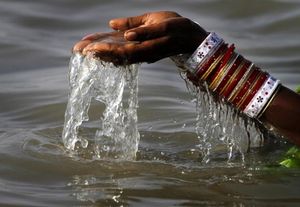 Today is World Water Day! It is important to take a moment today to recognize the great need in this world for water. In countries such as the US, access to clean drinking water is not a problem. However, it can be one of the main concerns for survival in less fortunate countries. Life without easy access to water is difficult one because of the many uses it has in our everyday lives. Bathing, cooking, cleaning – water is necessary for all of these things, among many others. Hygiene and good sustenance is difficult to obtain. We depend heavily on water directly and indirectly (e.g. its use in the manufacture of many of the products we use) for many things. For more information about how we depend on water, click on the following link: http://www.thegatesnotes.com/Topics/Development/Water-Water-Hardly-Everywhere.
Today is World Water Day! It is important to take a moment today to recognize the great need in this world for water. In countries such as the US, access to clean drinking water is not a problem. However, it can be one of the main concerns for survival in less fortunate countries. Life without easy access to water is difficult one because of the many uses it has in our everyday lives. Bathing, cooking, cleaning – water is necessary for all of these things, among many others. Hygiene and good sustenance is difficult to obtain. We depend heavily on water directly and indirectly (e.g. its use in the manufacture of many of the products we use) for many things. For more information about how we depend on water, click on the following link: http://www.thegatesnotes.com/Topics/Development/Water-Water-Hardly-Everywhere.
Access to clean drinking water is not readily available in poorer countries due to a variety of reasons, especially in rural areas. In Zambia, for example, only about 60% of the population has access to an improved water supply (http://www.nwasco.org.zm/pdfs/sectorreport2010-11.pdf). The situation is complicated by seasonal changes. While a long-term solution is needed, obviously, as a solution to this problem, there have been many simple technologies that have been implemented in the meantime in an effort to get better access to clean water, such as:
There are many available methods to help get easier access to clean drinking water. Why, then, is it still a problem? Water is a necessity for survival; it is a very basic need. It’s a shame that even though the means to obtain clean water are available, not everyone is able to gain access. Learn more about the problem and ways you can help at: http://www.unwater.org/worldwaterday/.
The BU Chapter of Engineers Without Borders is looking into the possible implementation a water filtration system in Zambia this year, and we’re glad for World Water Day because it has certainly opened our eyes to the need for water in the world. Please let us know if you’d like to become involved in our project!
By ewbexec
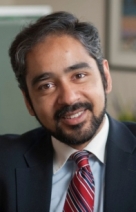 Hello everyone! Hopefully everyone has had a lovely spring break and are looking forward to the next couple of months before summer vacation.
Hello everyone! Hopefully everyone has had a lovely spring break and are looking forward to the next couple of months before summer vacation.
In recent news, check out the blog posts of Professor Muhammad Zaman, advisor to our BU chapter of Engineers Without Borders, on The Huffington Post! With titles such as "Make Development Part of the Equation" and "Engineering a Healthy Tomorrow for the Poorest Billions," Zaman looks at the greater context of engineering in today's world and the impact it can have on the lives of billions in the future. It's incredible, he says, that engineering has led to such technological innovations and accomplishments already, such as "sending the man on the moon and building bridges and buildings that defy imagination." Hopefully, continued imagination and creativity and hard work on the part of global engineers can continue this trend, with the focus of using engineering to better the lives of those in the poorest countries. While in recent years engineering programs have seen a decline in the number of applicants and interested individuals, this field has enormous implications for the future.
With the world's population over 7 billion people and growing at an exponential rate (http://ngm.nationalgeographic.com/7-billion), efforts must be made so that the poorest regions in the world are not held back, or regress, due to a disparity in resources and innovation and education, but instead are encouraged to progress and create the foundation for a healthy and sustainable future by investing in education and innovation. It is imperative that the conditions today in the poorest countries - including a lack of proper infrastructure, inadequate health services, etc. - not set the tone for the future. As Zaman says, "gone are the days when we accepted disease, suffering and poverty as the common lot of the poor." It is no longer acceptable to simply sit back on our laurels when there are issues that can be acted upon and situations that need to be changed. It's not an option to let such suffering continue. And engineers play a big part in ensuring that this idea of growth and progress, even in the poorest of countries, come to fruition in the future. Ultimately, everyone benefits from this investment in the future. "The creation of new knowledge and new paradigms to address the global problems will inevitable lead to discovery of new, cheaper and robust design criteria that will have an impact on all societies, including ours, here in the US."
And this is something that the BU chapter of Engineers Without Borders is working on. We hope that our project in Zambia, in partnership with the Center for Global Health and Development (CGHD) and the Zambia Center for Applied Health Research and Development (ZCAHRD), will help to contribute toward alleviating the current situation with HIV test results. For more information on our project, click the following link: http://people.bu.edu/ewbexec/Projects.html.
To read Professor Zaman's blog posts, click the following link: http://www.huffingtonpost.com/muhammad-h-zaman
By ewbexec
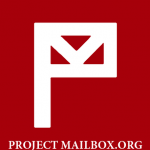 We've been approved by Project Mailbox for a February fundraiser! As a "charity for other charities", Project Mailbox is a new organization that was founded on Boston University's campus. Each month it helps raise both awareness and funds for different non-profits. Luckily for us, we're partnering with them for this month! If you're wandering down Comm Ave, you'll notice a red and white mailbox standing by Warren Towers that's right outside of University Grill at 712 Commonwealth Avenue. You can drop in change, cash, or checks to support our work in Zambia! So if you find yourself jangling with spare
We've been approved by Project Mailbox for a February fundraiser! As a "charity for other charities", Project Mailbox is a new organization that was founded on Boston University's campus. Each month it helps raise both awareness and funds for different non-profits. Luckily for us, we're partnering with them for this month! If you're wandering down Comm Ave, you'll notice a red and white mailbox standing by Warren Towers that's right outside of University Grill at 712 Commonwealth Avenue. You can drop in change, cash, or checks to support our work in Zambia! So if you find yourself jangling with spare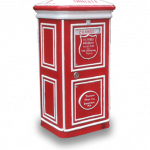 coinage in your pockets, swing by the mailbox and drop it in! Every bit helps, and we are so excited to see the small acts of generosity total up as we roll into March. You can also donate online directly to our chapter here (just make sure you select "Boston University Chapter" under the "Allocate your funds" section!)
coinage in your pockets, swing by the mailbox and drop it in! Every bit helps, and we are so excited to see the small acts of generosity total up as we roll into March. You can also donate online directly to our chapter here (just make sure you select "Boston University Chapter" under the "Allocate your funds" section!)
So, before you toss your change onto your dresser where it'll be lost in the chaos of your room, think about swinging by 712 Comm Ave to help out the Naluja community in Zambia.
By ewbexec
At Boston University, we've been busily working on getting our program approved in Zambia, and were fortunate enough to overcome a setback when the EWB Assessment Review Committee (ARC) initially rejected our 501-New Program Application. This is not unusual, according to a contact in the EWB-Boston Professional Chapter. However, it was more than difficult to see months of hard work rejected.
Thankfully, we were able to talk to Dave Sacco, an ARC and TAC (Technical Advisory Committee) reviewer. He offered some great insight into how to successfully appeal and apply for our Program in Zambia. Thanks to Dave's help, we were approved to open our program! Here are some of the things we learned from his short seminar:
A program is a chapter's overarching commitment to collaboration between the chapter and community for the minimum 5 years required by EWB-USA. In comparison, a project is a small piece within a program. Projects are implemented to address the needs identified by the community.
While the distinction between these two things is relatively fine, it's important to recognize their unique identity. There may be many projects you could implement that pertain to the program's theme. In our case, we're looking to focus on community health. As a part of this program, we could implement a water filtration project, a sanitation project, or the cell phone amplification project we've been looking at. Allowing for this type of flexibility allows EWB chapters to approach the needs of the community holistically.
When filling out your initial New Program application, you shouldn't have all the answers or solutions. This is a red flag for ARC reviewers that you have too many preconceptions as you enter into this program.
While it can be difficult to respond to the questions the 501 may ask because it seems to want explicit answers or details, Mr. Sacco stated that ambiguity should be expected during these first steps. You haven't, in theory, been on the ground and met your community face-to-face, yet. If anything, you may have some prospective leads on projects, but these projects cannot be successfully implemented or approved until you have gathered primary evidence and data about what the community needs and the best way to sustainably implement a solution.
In our past program in Peru, we experienced a great example of this. The community, during initial contact, discussed a desire for electricity. Based on the information our chapter had received, it seemed like solar panels would fit their needs. However, on the assessment trip, it became clear that while they could benefit from electricity, they were dying from contaminated water. From this, a new plan of action was charted to find a way to purify their water sources. Only once we had been on-site were we able to obtain a complete picture of what our community was dealing with and how to prioritize potential projects.
Make sure your community and partnering NGO are clear on who owns the projects and who ought to be the primary beneficiaries.
Although it may seem obvious, Dave Sacco reminded the seminar attendees to be clear during your discussion with partner NGOs, the government, and community leaders that your purpose as an EWB chapter is to collaboratively implement projects that address the needs the community faces. This means that the primary motivation for your work is always the community--not the NGO, not the government--the community. If this is not obvious in from your New Program application, it will not be approved by EWB.
Now that the New Year has just begun, EWB-USA will be implementing a new system to open New Programs. Now, the community or partner NGO must submit the 501 and the EWB chapter must adopt it by filling out a different form, the 502. By doing this, EWB-USA hopes to engage communities and NGOs that are invested in collaboration and actively seeking solutions. According to Dave Sacco, it seemed that EWB chapters have struggled in the past to successfully screen communities that would successfully work with the chapter. By changing the New Program application structure, hopefully, more chapters will enjoy successful and fulfilling programs with partnering communities.
By ewbexec
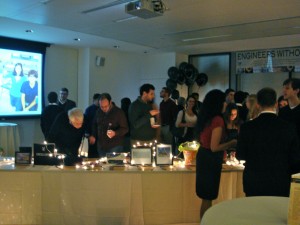 It's all over folks! Our Silent Auction was super successful and we were so happy to see faculty, members, and students coming out to join us as we shared a little bit about what our mission is as a non-profit and our newest project in Zambia. Our spectacular faculty advisor, Professor Muhammad Zaman, gave us a peek into what engineering global development looks like and whythese projects are so important to those living in places and conditions so unlike our own.
It's all over folks! Our Silent Auction was super successful and we were so happy to see faculty, members, and students coming out to join us as we shared a little bit about what our mission is as a non-profit and our newest project in Zambia. Our spectacular faculty advisor, Professor Muhammad Zaman, gave us a peek into what engineering global development looks like and whythese projects are so important to those living in places and conditions so unlike our own.
Our Executive Team also gave a short presentation on their history and current direction as a group. An emphasis was placed on our effort to strengthen our bonds with groups like the EWB Boston Professional
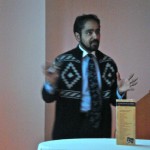
Chapter and the Millennium Campus Network. Plus, the Center for Global Health and Development was recognized as a critical partner for our newest project in Zambia. However, our Co-President was quick to remind the crowd that we are a student organization made up of 19 and 20 year olds. Sowhile we may be "saving the world" we're also trying not to take ourselves too seriously.
After the final call for bids was made, the winners were announced and we had some great prizes including a $100 Best Buy gift card and an overnight stay for two at Hotel Commonwealth. Our final tally was a $1000--that's money we can now dedicate to funding our project! Just like every year, we could not have done this alone. The generosity of our donor
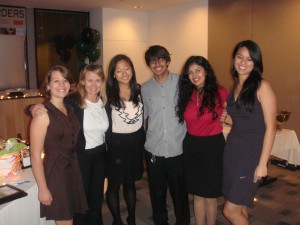 s and supporters never ceases to humble us: Saana McDaniel, our mentor and cheerleader as we planned this event and took a few risks, the BU Engineering Alumni Office who was kind enough to add us to their Alumni Weekend events, and all of the guests who attended to hear a little more about us. Finally, we'd liketo recognize our Treasurer and Silent Auction Chair, Grace Wang, who dedicated hours and hours to the planning of this event. From the catering menu to the background music, she did an incredible job--way to go! We're so excited for next year and we hope to see you all there!
s and supporters never ceases to humble us: Saana McDaniel, our mentor and cheerleader as we planned this event and took a few risks, the BU Engineering Alumni Office who was kind enough to add us to their Alumni Weekend events, and all of the guests who attended to hear a little more about us. Finally, we'd liketo recognize our Treasurer and Silent Auction Chair, Grace Wang, who dedicated hours and hours to the planning of this event. From the catering menu to the background music, she did an incredible job--way to go! We're so excited for next year and we hope to see you all there!
 Today is World Water Day! It is important to take a moment today to recognize the great need in this world for water. In countries such as the US, access to clean drinking water is not a problem. However, it can be one of the main concerns for survival in less fortunate countries. Life without easy access to water is difficult one because of the many uses it has in our everyday lives. Bathing, cooking, cleaning – water is necessary for all of these things, among many others. Hygiene and good sustenance is difficult to obtain. We depend heavily on water directly and indirectly (e.g. its use in the manufacture of many of the products we use) for many things. For more information about how we depend on water, click on the following link: http://www.thegatesnotes.com/Topics/Development/Water-Water-Hardly-Everywhere.
Today is World Water Day! It is important to take a moment today to recognize the great need in this world for water. In countries such as the US, access to clean drinking water is not a problem. However, it can be one of the main concerns for survival in less fortunate countries. Life without easy access to water is difficult one because of the many uses it has in our everyday lives. Bathing, cooking, cleaning – water is necessary for all of these things, among many others. Hygiene and good sustenance is difficult to obtain. We depend heavily on water directly and indirectly (e.g. its use in the manufacture of many of the products we use) for many things. For more information about how we depend on water, click on the following link: http://www.thegatesnotes.com/Topics/Development/Water-Water-Hardly-Everywhere.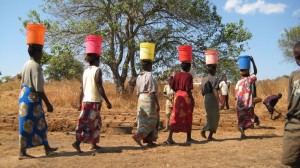
 Hello everyone! Hopefully everyone has had a lovely spring break and are looking forward to the next couple of months before summer vacation.
Hello everyone! Hopefully everyone has had a lovely spring break and are looking forward to the next couple of months before summer vacation. We've been approved by
We've been approved by  coinage in your pockets, swing by the mailbox and drop it in! Every bit helps, and we are so excited to see the small acts of generosity total up as we roll into March. You can also donate online directly to our chapter
coinage in your pockets, swing by the mailbox and drop it in! Every bit helps, and we are so excited to see the small acts of generosity total up as we roll into March. You can also donate online directly to our chapter  It's all over folks! Our Silent Auction was super successful and we were so happy to see faculty, members, and students coming out to join us as we shared a little bit about what our mission is as a non-profit and our newest project in Zambia. Our spectacular faculty advisor, Professor Muhammad Zaman, gave us a peek into what engineering global development looks like and whythese projects are so important to those living in places and conditions so unlike our own.
It's all over folks! Our Silent Auction was super successful and we were so happy to see faculty, members, and students coming out to join us as we shared a little bit about what our mission is as a non-profit and our newest project in Zambia. Our spectacular faculty advisor, Professor Muhammad Zaman, gave us a peek into what engineering global development looks like and whythese projects are so important to those living in places and conditions so unlike our own.
 s and supporters never ceases to humble us: Saana McDaniel, our mentor and cheerleader as we planned this event and took a few risks, the BU Engineering Alumni Office who was kind enough to add us to their Alumni Weekend events, and all of the guests who attended to hear a little more about us. Finally, we'd liketo recognize our Treasurer and Silent Auction Chair, Grace Wang, who dedicated hours and hours to the planning of this event. From the catering menu to the background music, she did an incredible job--way to go! We're so excited for next year and we hope to see you all there!
s and supporters never ceases to humble us: Saana McDaniel, our mentor and cheerleader as we planned this event and took a few risks, the BU Engineering Alumni Office who was kind enough to add us to their Alumni Weekend events, and all of the guests who attended to hear a little more about us. Finally, we'd liketo recognize our Treasurer and Silent Auction Chair, Grace Wang, who dedicated hours and hours to the planning of this event. From the catering menu to the background music, she did an incredible job--way to go! We're so excited for next year and we hope to see you all there!